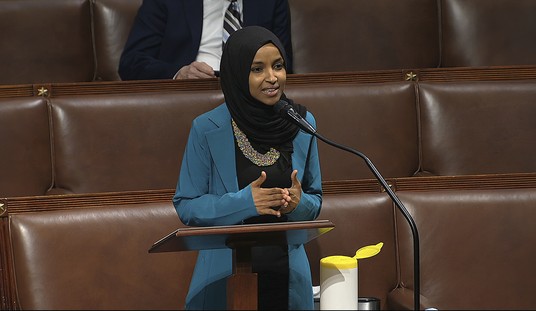A frustrating day of no leads or suspects emerging from the FBI’s quest to track down the Boston Marathon bomber took a strange turn Tuesday in Washington as a letter to a Republican senator tested positive for ricin.
Mail making its way to the Hill has been screened off-site for toxic substances ever since the 2001 anthrax letters, and it was here that the letter to Sen. Roger Wicker (R-Miss.) was intercepted.
“Earlier today the United States Capitol Police was notified by the Senate mail handling facility that it received an envelope containing a white granular substance. The envelope was immediately quarantined by the facility’s personnel and USCP HAZMAT responded to the scene. Preliminary tests indicate the substance found was Ricin,” said Public Information Officer Shennell S. Antrobus in a statement.
“The material is being forwarded to an accredited laboratory for further analysis. The USCP is partnering with the Federal Bureau of Investigation to investigate this incident. This is an ongoing investigation.” Lab tests in Maryland and field tests were positive.
Wicker, who has been placed under protection, simply added it was an ongoing investigation and said he and his wife “appreciate everyone’s thoughts and prayers.”
“I want to thank our law enforcement officials for their hard work and diligence in keeping those of us who work in the Capitol complex safe,” the senator added.
Senators were told about the incident at an early evening briefing led by Homeland Security Secretary Janet Napolitano and FBI Director Robert Mueller that was expected to focus on information about the Boston terrorist attack. Sen. Claire McCaskill (D-Mo.) wrongly told reporters that a suspect was in custody for the ricin letter, which had a Mempis postmark and no return address.
For apparently having so little information about the bombing, the administration tried to convey the message that Americans didn’t need to fear a follow-up attack — even as a nervous White House briefly evacuated today because of a suspicious package.
“What I’ve indicated to you is what we now know. We know it was bombs that were set off. We know that, obviously, they did some severe damage. We do not know who did them. We do not know whether this was an act of an organization or an individual or individuals. We don’t have a sense of motive yet,” President Obama said during a morning statement. The daily press briefing with spokesman Jay Carney was canceled, and Obama didn’t take questions from reporters after his remarks.
In her own statement, Napolitano said she was in contact withe Boston officials and the state’s congressional delegation to stress “the Department of Homeland Security’s support to the FBI-led investigation and the Administration’s commitment to bringing whoever committed this act of terror to justice.”
“While there is no current indication to suggest that the events in Boston are indicative of a broader plot, out of an abundance of caution, DHS continues to keep in place enhanced security measures at transportation hubs, utilizing measures both seen and unseen,” Napolitano continued. “We continue to urge the American public to remain vigilant and immediately report any signs of suspicious activity to local law enforcement officials.”
As the identity of the guilty party remained murky, politics steered the bombing into different areas.
Rep. Adam Schiff (D-Calif.) said on CNN that administration officials don’t want to repeat the mistakes of communications after the Benghazi attack.
“Intelligence community wants to get facts right, not get out too early with assessment that may prove inaccurate,” Schiff said on Twitter when questioned about his statement.
Relying on early information that a Saudi national here on a student visa was being regarded as a suspect, Rep. Steve King (R-Iowa) told National Review the immigration reform bill should be put on hold for further review.
“Some of the speculation that has come out is that yes, it was a foreign national and, speculating here, that it was potentially a person on a student visa. If that’s the case, then we need to take a look at the big picture,” King said. “If we can’t background-check people that are coming from Saudi Arabia, how do we think we are going to background check the 11 to 20 million people that are here from who knows where?”
Sen. Marco Rubio (R-Fla.), in speaking with reporters, chided King to be “very cautious about using language that links these two things in any way.”
“We know very little about Boston other than that it was obviously an act of terror,” Rubio said. “We don’t know who carried it out or why they carried it out, and I would caution everyone to be very careful about linking the two.”
D.C. Delegate Eleanor Holmes Norton (D) said at a hearing today that the bombing showed federal police can’t take a hit from sequestration.
“D.C.’s heart and prayers are first with Boston today, but then we must turn to the precautions necessary to protect hometown D.C. and the nation’s capital while keeping the city open and accessible to residents and tourists alike,” said Norton. “The Boston tragedy comes at a time of year when urban America, particularly D.C., is out and about. Our response to the tragedy in Boston must not be surrender to terrorism or retreat in fear or to allow scarcity of the resources necessary to keep our people safe.”
“We will not tolerate the barricade approach to terrorism that creates a police state atmosphere in the freest capital city in the world,” she added.
Obama is heading to Boston on Thursday to speak at an interfaith service for the bombing victims.
Napolitano appears before the Senate Homeland Security and Governmental Affairs Committee on Wednesday morning and before the House Homeland Security panel on Thursday. The hearings were scheduled before the bombings to discuss Obama’s budget proposal for the Department of Homeland Security.









Join the conversation as a VIP Member